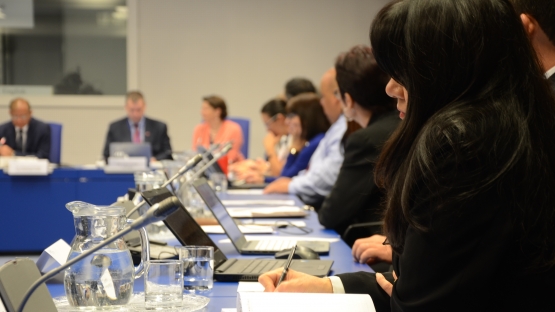The recently launched second phase of the IAEA Regulatory Infrastructure Development Project (RIDP) in Latin America and the Caribbean aims to help 14 countries strengthen national regulatory infrastructure for radiation safety and nuclear security, almost twice as many as the first phase in 2017.
From 23 to 26 April, representatives from the participating countries analysed lessons learned and agreed on future activities. Representatives of countries that took part in the first phase – Chile, Costa Rica, Cuba, Ecuador, El Salvador, Guatemala, Paraguay and Uruguay – were joined by representatives from countries that are new to the second phase: Bolivia, Colombia, the Dominican Republic, Honduras, Panama and Peru.
“The project will help participating countries use radioactive sources safely and securely by supporting them as they develop regulatory infrastructure that is strong enough to handle any needs that arise,” said Hilaire Mansoux, Head of the IAEA’s Regulatory Infrastructure and Transport Safety Section, in his opening remarks.
Participants agreed that project activities should help introduce or strengthen procedures and systems to safely and securely handle and control radioactive sources used in medicine, industry and research.
Almost half of the 130 regulatory staff involved in the first phase of the project are female – reflecting emphasis on gender parity in all project activities.
Hand in hand: safety and security
“The project addresses both security and safety in a harmonised approach that is tailored to States’ needs and is consistent with the IAEA Nuclear Security Plan,” said Muhammed Khaliq, Head of the IAEA’s Nuclear Security of Materials and Facilities Section.
Project activities will involve different IAEA resources, including expert missions, regional and national trainings and advisory missions. The activities will offer the countries taking part support in areas related to the national policy for safety and security, safety and security regulatory framework, authorization and inspection, physical protection and management systems.
The new project complements assistance provided by the IAEA through national and regional technical cooperation projects to strengthen regulatory infrastructure for radiation safety.
Learning from experience
“Thanks to this assistance, El Salvador made significant progress towards strengthening its regulatory infrastructure, which is now more in line with the IAEA international standards and guidance," said Carolina Escobar de Rivera, Director of Radiological Protection at El Salvador’s Ministry of Public Health and Social Assistance.
Participants from all countries reported on the progress in their ability to regulate activities such as radiology, nuclear medicine, radiotherapy, industrial radiography, industrial irradiators, nuclear gauges and well logging in line with the IAEA Safety Standards, the Nuclear Security Series and the Code of Conduct on Safety and Security of Radioactive Sources and its supplementary guidance documents.
The new phase will benefit from recently introduced activities targeting young regulators, integrated management systems, and skills in authorization and inspection.
“We are very pleased with the tangible results reported by the beneficiary countries participating in the first phase, and Canada looks forward to supporting the second phase through a further contribution to IAEA’s Nuclear Security Fund,” said Chris Grout, Project Leader for Nuclear and Radiological Security in the Weapons Threat Reduction Program Division at Global Affairs Canada.
Similar initiatives were launched in 2013 in Afghanistan and from 2014 to 2016 in North Africa and the Middle East. The IAEA is implementing a similar project to support African countries.









